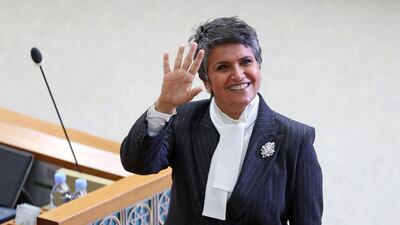Kuwait’s higher courts sentenced a Saudi man and six Syrians to jail for counterfeiting Kuwaiti citizenship and exploiting the country’s social services.
The Kuwait Criminal Court sentenced the Saudi to seven years in jail and the Syrians to four years followed by immediate deportation.
The Saudi man worked in the ministry of defence as a Kuwaiti citizen and was found guilty of embezzling KWD24,000 (Dh292,000). He was also ordered to pay back twice the stolen amount.
The Syrian man used forged Kuwaiti papers to gain citizenship for his five sons under the country’s national inheritance law, which stipulates that all children of a Kuwaiti national qualify for citizenship.
Safa Al Hashem, a member of the Kuwaiti parliament, said the landmark criminal case was the first of many to come and said 300,000 of 1.3 million Kuwaiti population hold fake citizenship.
“You’ll find there are 300,000 people with counterfeit Kuwaiti citizenship," she said, according to local news outlet, Al Rai. Removing those 300,000 fake citizens would return the population of Kuwait to its original figure of around one million, she added.
The MP suspects the most common method of obtaining forged citizenship documents is by bribing government employees.
“In the past, everyone disregarded me for making false accusations. Today we all witnessed — since Sheikh Mazen Al Jarrah began handling the case — that those counterfeiters are being caught like rats,” she told Al Rai.
She urged Sheikh Mazen Al Jarrah, an official in the ministry of interior, to continue cracking down on the counterfeiters.
Kuwaitis benefit from many social services and welfare programmes, such as government stipends, free land and health care.

